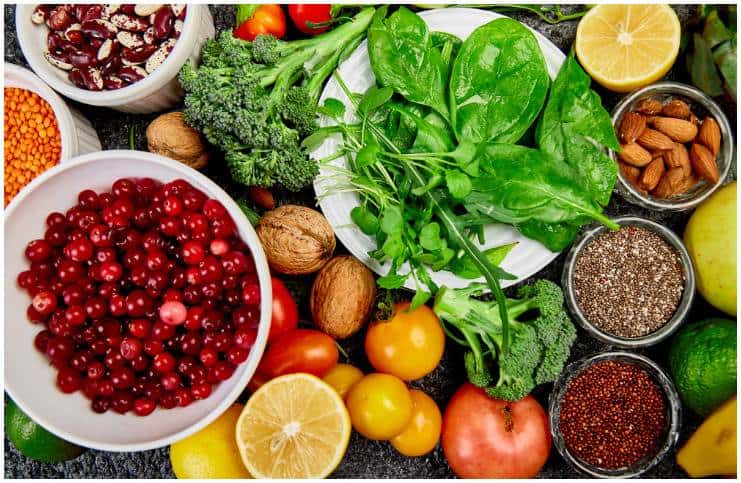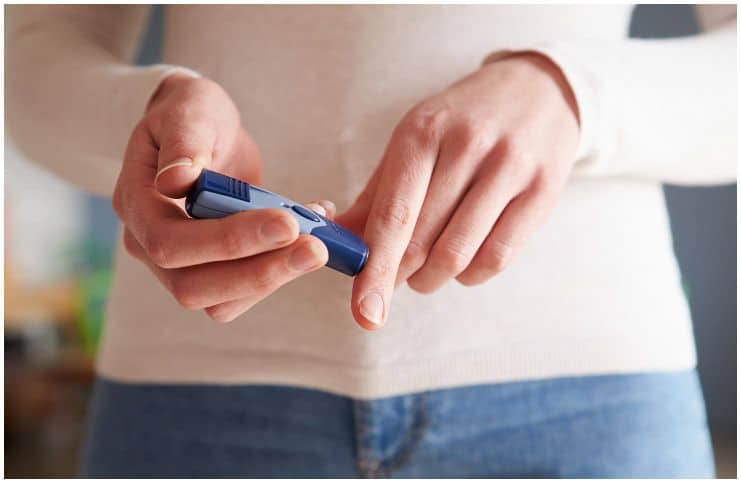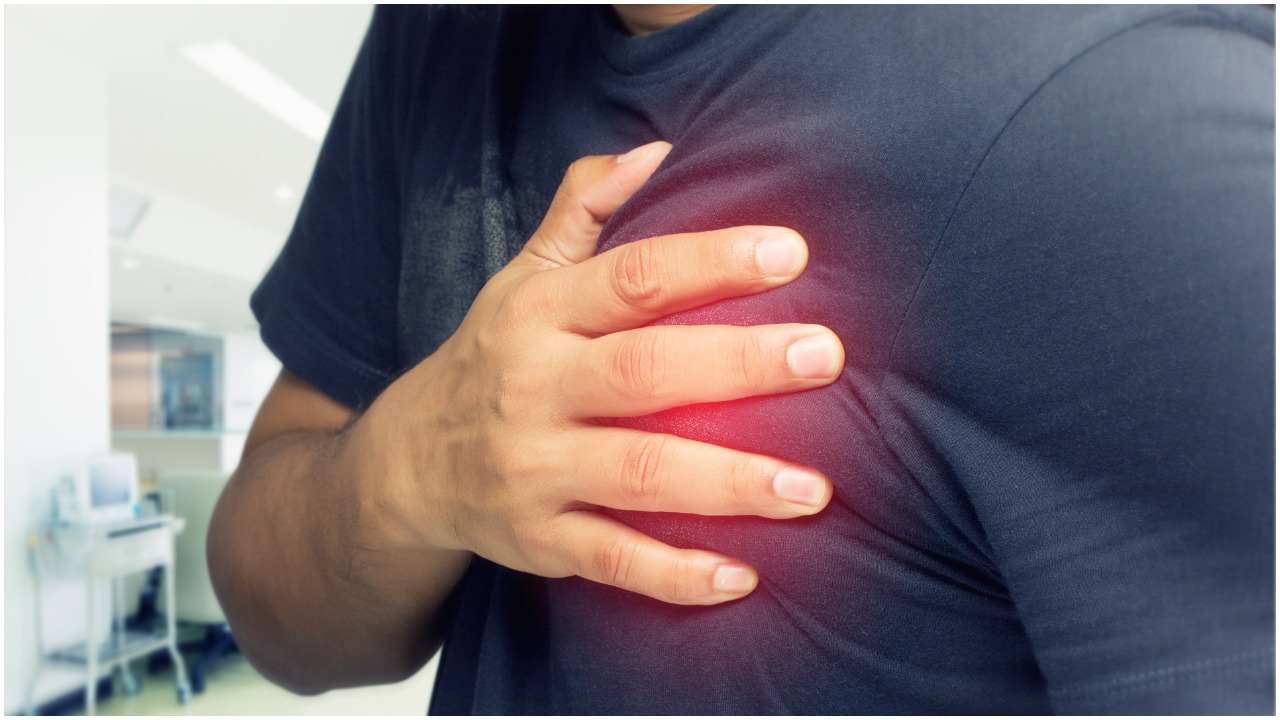Following a healthy, balanced vegan diet guarantees many health benefits as well as prevention of some of the major chronic diseases striking people around the world.
Here are a few health benefits of a complete vegetarian diet:
Vitamin C
One of the total vegetarian diet vitamin all-stars is vitamin C, which is a powerful nutrient necessary to produce collagen in the skin. Collagen is the most abundant protein in mammals (makes up nearly 30 percent of the protein content in the human body), keeping skin and other tissues tough but flexible.
Vitamin C is an antioxidant as well. Antioxidants are vital nutrients that reduce the damage caused by free radicals, which are atoms or groups of atoms which result when our physical bodies convert food into energy.
Diabetes prevention
The risk of type 2 diabetes Mellitus is lower because plant-based diets are low in cholesterol and fat. In addition, according to studies, the veggie and fruit intake can actually correct insulin sensitivity.
Weight management
A food high in raw, clean whole foods may improve your chances of losing weight, while cooked foods may help with nutrient absorption. Weight loss usually occurs because the diet consists of foods that have high water content and are full of dietary fiber, which promotes the feeling of fullness and satiety.
Healthy blood pressure
Eating lots of plants is strongly associated with a lower blood pressure. The fiber in whole grains, seeds, nuts, and legumes can also control it by keeping LDL cholesterol in check. Actually, eating more plants and less meat, eggs, and dairy products, can treat hypertension.
Furthermore, the majority of all whole grains, nuts, legumes, seeds, dark leafy vegetables, and all fruits contain high amounts of potassium, which is an essential mineral that plays a role in keeping your muscles working right and your heartbeat regular. Low potassium levels can lead to problems with heart rhythm and muscle weakness.
Increased immunity to diseases
A heavy animal-based diet is linked with higher levels of chronic disease and high LDL cholesterol, and elevated levels of dairy have been strongly associated with an increased risk of osteoporosis and cancer.
The World Health Organization has classified meat (especially red or processed) as a level one carcinogenic and many health advocacy groups currently recommend that you limit your consumption of red meat to less than 3 times per week.
Greater mental clarity and mood
Replacing animal products and processed foods with fresh, hydrating, living plant foods improves focus, helps fight brain fog, and gives you a burst of energy. More importantly, eating a plant-based diet can increase your happiness levels and balance your emotions.
It’s good for the environment
We cultivate huge amounts of grain to feed animals, but we would use fewer energy resources and less water if we consume the grain ourselves. For instance, it takes about 5 kg of grain to produce 1 kg of chicken and about 15 kg of grain to produce 1 kg of beef. Moreover, eating plants helps reduce land overuse and protects against waste and runoff from animal agriculture.
You’re not supporting animal cruelty
One of the biggest things about supporting a total vegetarian diet is that you are not supporting animal cruelty. Instead, you are letting the pigs be pigs whilst you’re cooking up a storm in the kitchen. If more people just reduce considerably their consumption of animal products, just imagine what a better place the world would be.
How to eat
Breakfast
- 4 medium bananas
- 1 medium apple
- 1 tbsp grounded flaxseeds
- 2 oz oat bran, raw
- 1 tbsp millet
- 5 almonds, raw.
Mix all the foods in a big bowl. You can use any type of fruit you want but aim for 800 kcal.
Lunch – another fruit salad.
Dinner – 1 large vegetable salad (include – carrots, radish, cucumber, bell pepper, tomatoes, onion, zucchini, spinach, broccoli, cabbage) + 100g sweet potatoes and 300g of potatoes (boiled or cooked) + 75g of any type of legume you like (chickpeas, lentils, red kidney beans, mung beans). Instead of potatoes, you can use brown rice, polenta, or whole bread.
What to avoid completely
- any type of meat
- dairy products
- eggs
- alcohol
- smoking tobacco
- vegetable oils and fried foods
- coffee and any drinks with caffeine (chocolate, soft, energy, and sports drinks).
Tips
- choose as many local, seasonal, organic foods as possible.
- aim for a minimum of 2500 kcal/day.
- keep salt under 2 g per day.
- drink plenty of water. This helps the elimination and dilutes the circulating toxins in the blood-stream and aids elimination via the skin, bowel, and kidneys.
- take a vitamin B12 supplement. It is a water-soluble vitamin that is involved in the function of every cell in the body.
- spend time outside. Sunlight triggers our body to produce 200 antimicrobials that kill off fungi, bad bacteria, viruses, and parasites. More importantly, direct sunlight on our bodies gives us energy and vitamin D, which helps prevent cancer and boosts our immune system.
- practice moderate physical exercise – a minimum of 20 minutes per day or 40 minutes every other day.
What to expect after 40 days vegan detox diet:
- a higher libido;
- more frequent trips to the bathroom. Most plant foods (particularly whole foods like veggies and fruits) are much higher in water content than animal products;
- weight loss – this amount varies from person to person;
- better sleep;
- aches and pains – elimination of toxins can cause tightness in some parts of the body resulting in pains and aches. The more toxins that float around in the blood, the worse the symptoms can be.
References http://www.everydayhealth.com/high-cholesterol/ https://www.sharecare.com/health/special http://www.mayoclinic.org/healthy-lifestyle/nutrition




